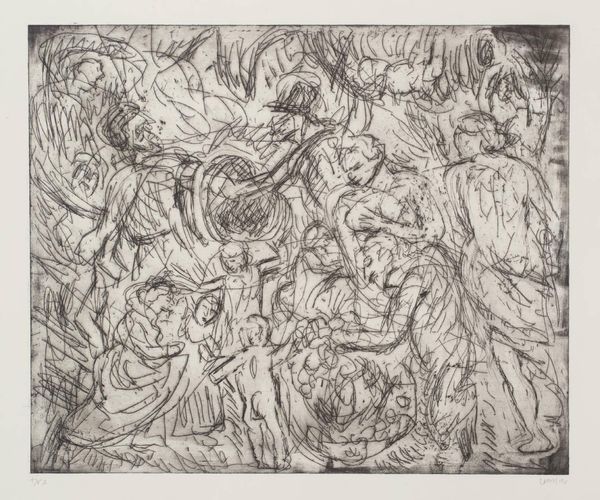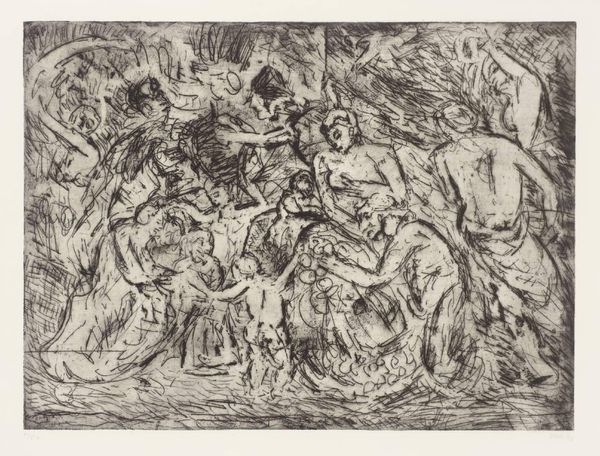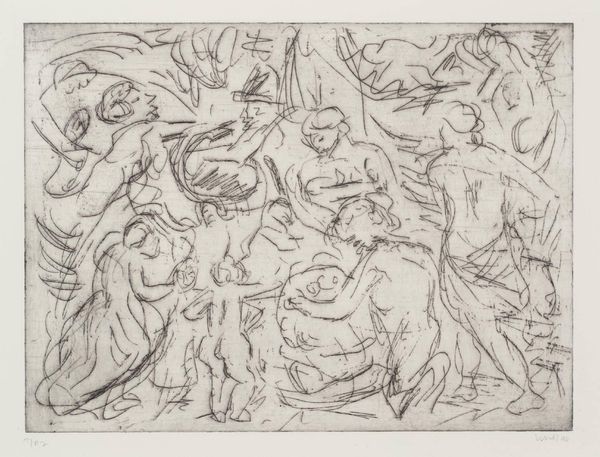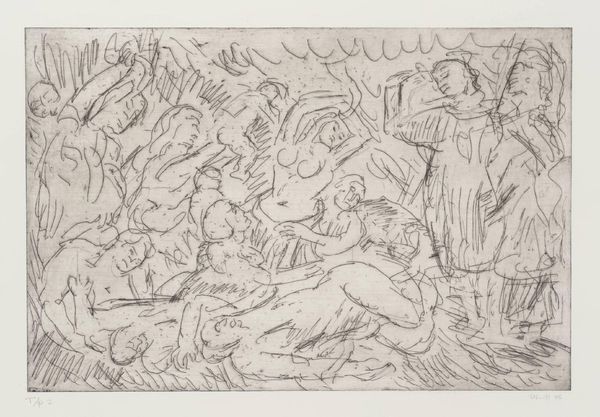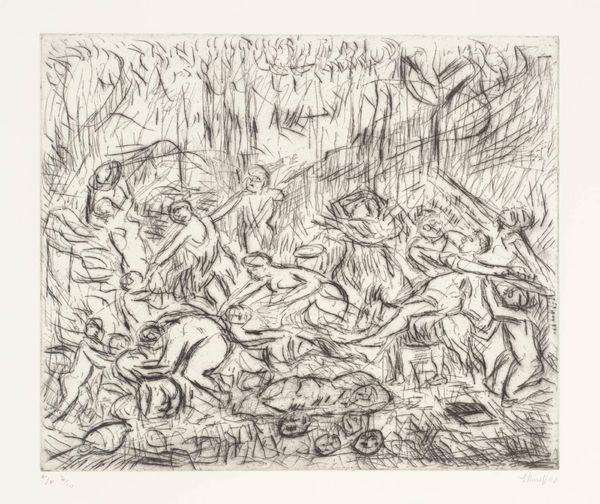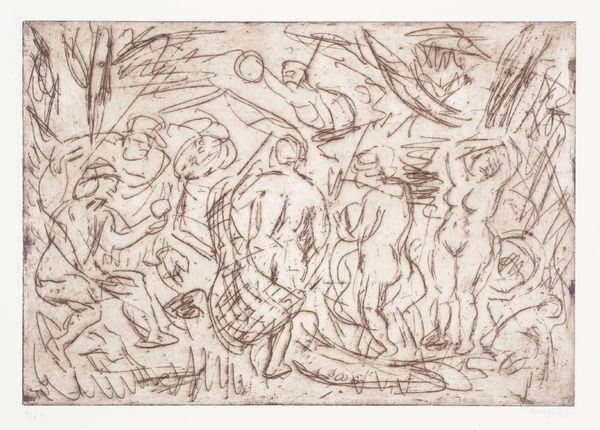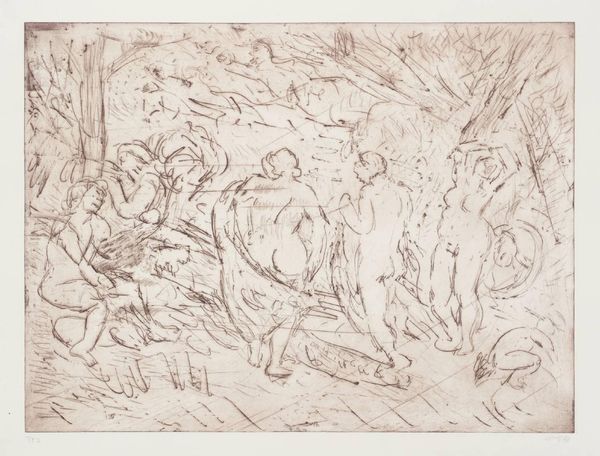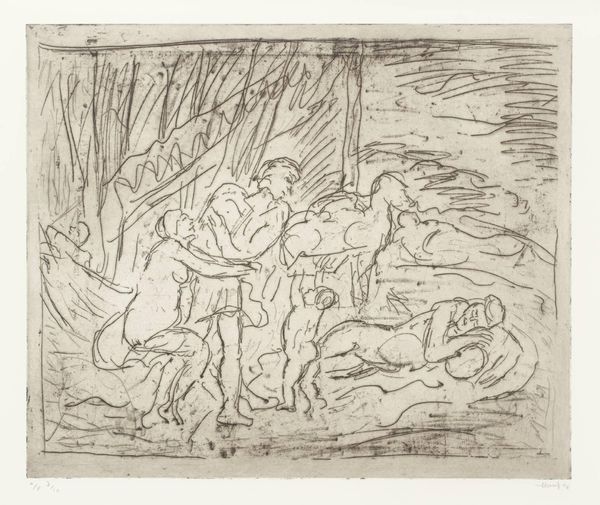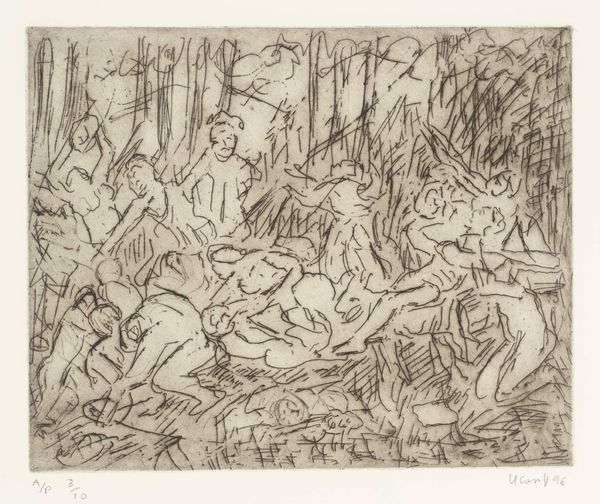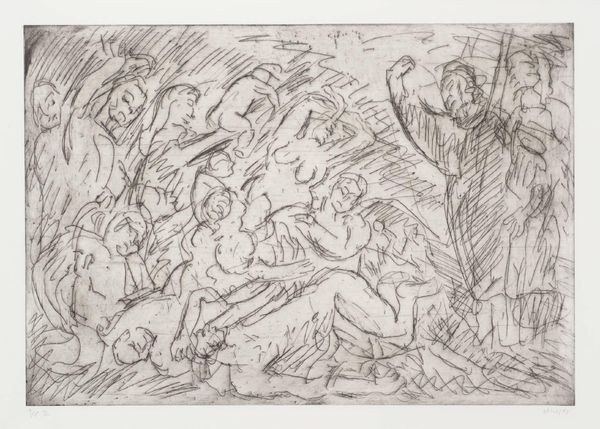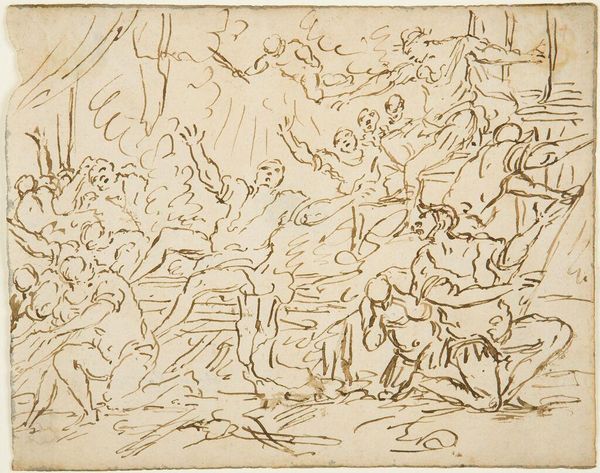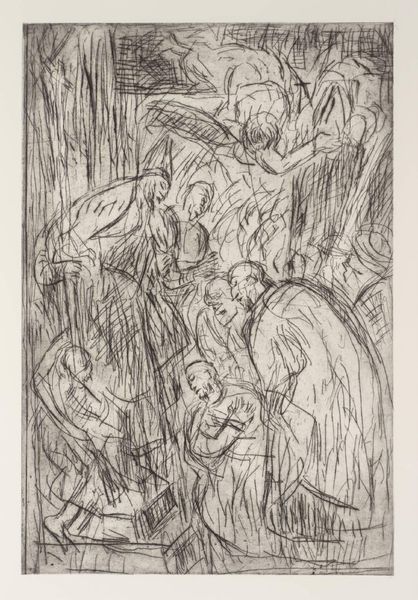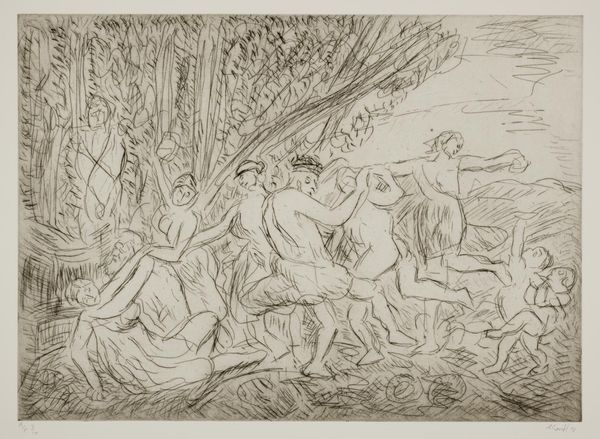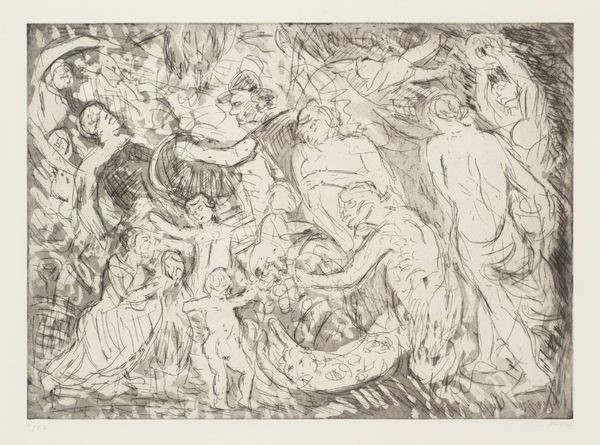
Dimensions: image: 448 x 556 mm
Copyright: © Leon Kossoff | CC-BY-NC-ND 4.0 DEED, Photo: Tate
Curator: Leon Kossoff's etching, titled "Minerva Protects Pax from Mars ('Peace and War') (5)," presents a chaotic yet compelling scene. Editor: Wow, talk about a mood! It feels like looking at a battlefield through a rain-streaked window, all blurring lines and frantic energy. Curator: Indeed. Kossoff engages with classical mythology to explore themes of conflict and protection. Minerva, the goddess of wisdom and strategic warfare, shields Pax, the goddess of peace, from Mars, the god of war. This piece reveals Kossoff's engagement with historical narratives reinterpreted through a modern lens. Editor: You know, the scribbled lines almost feel like the frantic thoughts in the middle of chaos. It’s like feeling the anxiety in your bones, which is quite impressive for just some lines on paper. Curator: The frantic lines underscore the ever-present tension between peace and war, reflecting anxieties relevant across history and still today. Kossoff never shied away from depicting the human condition through such charged imagery. Editor: True, true. It's like he's saying, "Peace isn't just the absence of war; it's a constant struggle." I’ll take that thought with me, thank you very much.
Comments
tate 9 months ago
⋮
http://www.tate.org.uk/art/artworks/kossoff-minerva-protects-pax-from-mars-peace-and-war-5-p11704
Join the conversation
Join millions of artists and users on Artera today and experience the ultimate creative platform.
tate 9 months ago
⋮
This print is one of many etchings executed by Leon Kossoff in response to, and literally in the presence of, oil paintings by old masters; in this case Minerva Protects Pax from Mars (‘Peace and War’), 1629-30, by Peter Rubens (1577-1640), owned by the National Gallery, London. Tate owns five prints by Kossoff after this Rubens painting (Tate P11700-4). The artist’s ability to explore a number of separate responses while making drawings and prints from a single subject is illustrated in these etchings. This print was never published as an edition; Tate owns the second trial proof.
